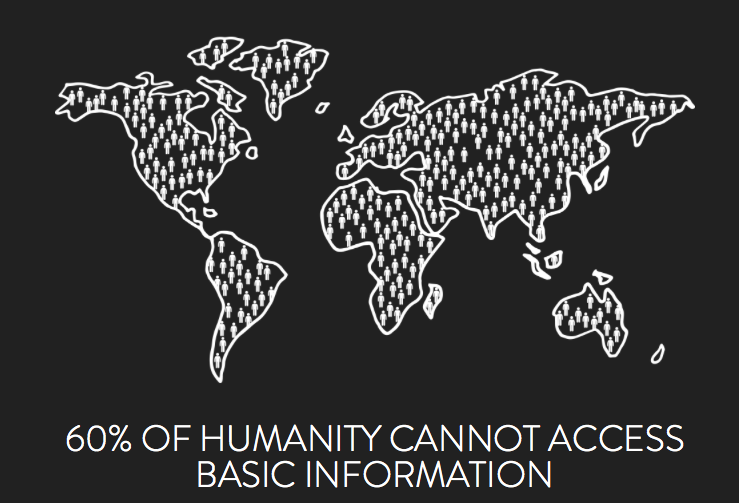The Outernet project has decided on the content delivery method and launches a fundraising company for the receiver

Outernet is a project dedicated to organizing access to a certain semblance of the Internet anywhere in the world using satellite data transmission facilities.
Earlier posts on this project were published on Habré ( "A little more about the Outernet project" ), but there were unresolved questions:
- How will access be organized?
- Will it be only a Broadcast receiver or data transfer in both directions?
- How to "catch" a signal?
It seems that all these issues have been resolved.
More recently, Outernet launched a crowdfunding project to raise money for their network receiver:

What is:
- Satellite receiver;
- Built-in battery;
- Solar panels for recharging;
- Wi-fi.
The receiver allows you to receive a satellite signal and transmit the received data via WI-Fi to connected devices. According to the developers, access to the network does not require installing applications - just a browser on the end device will be enough.
It is designed to work for 12 hours (receiving a signal) and 4 hours with a Wi-Fi connection.
Network architecture
It seems that the Outernet developers have finally decided how everything will work. The basis of everything is DVB-S - it is on the basis of this standard that data is transmitted from the satellite to the end devices, in addition, as previously assumed, the service will be implemented by subscribing to a specific Broadcast stream (by analogy with the inclusion of a channel on satellite TV).
But perhaps the most interesting thing is that everyone can assemble their own receiver based on Raspberry PI: github.com/Outernet-Project/orx-install
Thus, buying their receiver or collecting your own - you can receive a signal from Outernet service for free.
Speed
As many expected, the access speed will be low, but it turned out to be even lower than previously expected. More interestingly, the creators of the service decided to increase the speed depending on the amount of money collected through crowdfunding.
$ 200,000 - The project will start successfully, speed 2 megabytes / day
$ 500,000 - 10 megabytes / day
$ 5,000,000 - 20 megabytes / day
$ 10,000,000 - 100 megabytes / day
Device overview + project story from developers
What will be broadcast
- News in different languages;
- wikipedia (it is not clear what volume / format);
- Emergency messages;
- Various programs for education.
The cost of the receiver is $ 89 .
In my humble opinion, the acquisition of a receiver in the Russian Federation and the CIS countries makes a very important sense, while we can still get something from abroad by mail ...
Only registered users can participate in the survey. Please come in.
What do you think - will they raise money for the project?
- 63% Yes 363
- 36.9% No 213
Will you participate?
- 8.8% Yes, I will order the receiver 51
- 25.4% Yes, I will collect it myself 147
- 65.6% No 379
